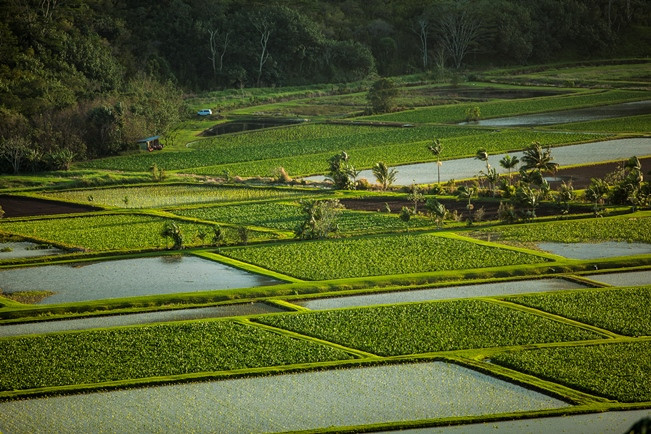In many agroecosystems, the need to adapt to changing long-term weather patterns and to mitigate their impacts is becoming ever more evident. Often, climate change is recognized to be responsible for severe droughts or extreme precipitation events. However, impacts go far beyond the water cycle. Rising temperatures cause a range of issues: amongst others, they increase evapotranspiration and thus water requirements; they threaten the health of people and livestock; and they reduce livestock and plant performance down to complete crop failure thus requiring measures including shading and active cooling. Droughts, erratic or extreme precipitation events cause secondary issues which include increase in soil salinity or prolonged flooding, and increase the need for irrigation, which in turn may cause new issues including depletion of and competition for available water sources.
Agroecology, regenerative agriculture and organic farming are approaches that can accelerate the transition of conventional food systems and contribute to achieving key commitments made in the European Green Deal and its farm to fork strategy and biodiversity strategy for 2030. Further, Climate Smart Agriculture (CSA) can enhance the capacity of the agricultural systems to support food security. Proven CSA technologies can reduce climate risks through adaptation and can address climate change through mitigation measures, while at the same time increase agricultural profitability.
An important project from GOPA AFC in that sector is the German-Colombian training center on agroecology, "AGRO-ECOlombia," funded by BMEL and launched in February 2024. The project will involve extensive services such as the implementation of innovative agroecological approaches, development of communication tools for consulting, and promotion of bilateral dialog on agroecology. Our objective is to make high-impact agroecological approaches increasingly available, thereby enhancing food security and socio-economic conditions, while protecting the climate and biodiversity.
The "Cooperation in Organic Agriculture (COA) - Phase II" project, funded by BMEL and initiated on August 2020, is actively enhancing the Ukrainian organic agriculture sector. The project aims to improve the quality and extend the range of organic produce by bolstering competencies and institutional structures. The ultimate goal is to enrich the agroecology and climate sector by fostering a robust framework for organic agriculture and promoting sustainable practices for a greener future.
We are also pleased that MetaMeta, a renowned Dutch consultancy, is part of GOPA AFC since 2024. Based in Wageningen, the Netherlands, MetaMeta is a thought leader in many dimensions of water, agriculture, environment, and green infrastructure. Its service offering combines research, innovation, policy development and programme implementation. With more than 20 years of international water and climate expertise MetaMeta is complementing GOPA AFC's global experience in agriculture and financial sector development.
At GOPA AFC, we continue to underscore the importance of agroecology and climate smart agriculture for the future of our planet. As we progress towards a greener, more sustainable agricultural sector, we are eager to ensure that local and global communities comprehend and embrace the benefits of sustainable agricultural practices. This remains central to our efforts to construct a more sustainable food system, involving all stakeholders - from farmers and consumers to policymakers and businesses.


